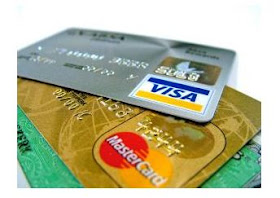This is a guest post by Alex Brown, Marketing Head, and Editor of mortgagefit.com.
As the current economic situation is taking a toll on the US citizens, people are not getting the chance of repaying their home mortgage loan with their own funds. Most of them are looking for ways through which they can repay their loan without taking much stress on their present finances. When a homeowner is too much worried about his monthly obligations, he takes resort to his plastics in order to make life easier. However, this is not at all recommended by the financial experts it can heavily take a toll on your finances. This is the reason why it is said that a person must consider how much can I afford to pay for a house before taking out a home loan so that he doesn’t fall in danger. Though there are various credit card companies that have introduced programs that allow them to repay their home loan with their card, it is always better not to opt for this option.
Some important questions to consider before using your cards to make the mortgage payments
Even though paying back your mortgage balance with your credit cards may seem to be an appealing process, you must still ask yourself some important questions.
1. Do I have the ability to repay my balances in full?
The first and the most important question is whether you have the ability or rather the financial ability to repay your debts in full every month. On high-cost items like mortgage loans, the interest rates will always accumulate and this can make repayments costlier for you. Though the interest rates that you pay for your mortgage loans are tax-deductible, yet the credit card interest rates are not. Carrying a balance from one month to another will have a dear impact later on.
2. Will this entire process hit my credit score?
Whenever you think of repaying your mortgage payments with credit cards, you must always consider the impact on your credit score. Only when your credit limit is not enough and after you add your mortgage payments to your credit card, it consumes half of your limit, which can hurt your credit score.
3. Am I timely while paying the credit card bills?
You must always make sure that you repay all debt obligations on time so that you don’t incur late fees and penalties in the long run. On credit cards, a single late payment can cost you dearly.
Even after you get positive answers to the questions mentioned above, you must try your best to avoid repaying your mortgage with credit cards. It is always better to consider ‘how much can I afford to pay for a house’ before taking out a loan so that such a situation does not arise when you need to take the help of your credit card. You must also manage your personal finances and make payments on time.
Pages
▼
Tuesday, September 27, 2011
Tuesday, August 30, 2011
Top Five Ways on Negotiating a Credit Card Deal
This is a guest post by Mike Brains
There are many ways you can improve your credit card deal by negotiating with your card provider. In fact, by following these tips, you could save a lot of money.
1. You should always compare credit cards. If you see a credit card with a better APR than you currently have, tell your card provider.
Often, they will reduce your APR to keep you as a customer. If they can't do this, you should transfer to a provider that offers the best credit card rates.
2. Do not be afraid to take advantage of your loyalty as a customer. If you have held a credit card for a long time, you can use this to negotiate a reduction in the interest rates or fees. Highlight how valuable you are as a customer, and your card provider may reward you.
Again, it makes sense to compare credit cards. Knowing what other companies are offering will help you negotiate with your current provider.
3. It also helps to know how you use your card when negotiating. For example, if you always pay off the balance early, then it doesn't matter if you are getting the best credit card rates. After all, you won't be charged interest if you have no balance. Instead, you should try and persuade your provider to offer rewards such as air miles or cash back. On the other hand, if you often have a balance on your card, your negotiations should be aimed towards reducing the APR and any fees.
4 Make sure you talk to someone with authority when negotiating with your credit card company. Most customer service staff won't be able to offer the best credit card rates, so ask to speak to a supervisor.
5. Finally, try to reduce any fees. Once again, it helps to compare credit cards so you can quote the fees charged by other companies.
Nothing will get your credit card company to act like threatening to close your account and go to a rival.
There are many ways you can improve your credit card deal by negotiating with your card provider. In fact, by following these tips, you could save a lot of money.
1. You should always compare credit cards. If you see a credit card with a better APR than you currently have, tell your card provider.
Often, they will reduce your APR to keep you as a customer. If they can't do this, you should transfer to a provider that offers the best credit card rates.
2. Do not be afraid to take advantage of your loyalty as a customer. If you have held a credit card for a long time, you can use this to negotiate a reduction in the interest rates or fees. Highlight how valuable you are as a customer, and your card provider may reward you.
Again, it makes sense to compare credit cards. Knowing what other companies are offering will help you negotiate with your current provider.
3. It also helps to know how you use your card when negotiating. For example, if you always pay off the balance early, then it doesn't matter if you are getting the best credit card rates. After all, you won't be charged interest if you have no balance. Instead, you should try and persuade your provider to offer rewards such as air miles or cash back. On the other hand, if you often have a balance on your card, your negotiations should be aimed towards reducing the APR and any fees.
4 Make sure you talk to someone with authority when negotiating with your credit card company. Most customer service staff won't be able to offer the best credit card rates, so ask to speak to a supervisor.
5. Finally, try to reduce any fees. Once again, it helps to compare credit cards so you can quote the fees charged by other companies.
Nothing will get your credit card company to act like threatening to close your account and go to a rival.
Wednesday, March 23, 2011
New Credit Card Rules in Malaysia
Bank Negara Malaysia is tightening credit card requirements for those in the lower-income bracket to keep household debt at manageable levels.
With immediate effect, first-time applicants for a credit card must now have a minimum monthly salary of RM2,000 from RM1,500 previously.
According to Bank Negara Malaysia deputy governor, Nor Shamsiah Mohd Yunus, new and existing cardholders earning RM36,000 per annum and less, can hold only credit cards from a maximum of two issuers. The maximum credit limit has been capped or two times the monthly income of the cardholder
For existing cardholders, they need to choose their preferred two issuers by December 31. For those existing cardholders who are earning less than RM24,000 per annum, they need not surrender their credit cards.
Nor Shamsiah said cardholders would be given at least two years to service their outstanding debt for cancelled cards to comply with the new requirement
For existing cardholders, whose outstanding balance exceeds the maximum credit limit, a grace period of two years will be given to settle the amount in excess of the maximum credit limit
From January 1 onwards, issuers shall review cardholders’ eligibility on the anniversary date of the credit card. During the review, if cardholders have fulfilled their quota of holding credit cards from two issuers, the issuer shall not extend their credit card facility to the cardholder.


